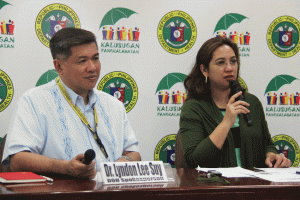
The Department of Health (DOH) is intensifying its efforts to address the potential threat of the Zika virus. According to then-DOH Secretary Janette Garin, the government is taking proactive steps to safeguard public health following a reported case of Zika virus infection involving an American woman allegedly exposed to the virus in the Philippines. This response also comes amid calls from medical professionals to prioritize action against the virus.
What is the Zika Virus?The Zika virus is a mosquito-borne disease primarily transmitted through the bite of an infected Aedes aegypti mosquito, the same species that spreads dengue and chikungunya. While symptoms are typically mild and include fever, rash, and joint pain, the virus poses severe risks to pregnant women as it is linked to congenital conditions like microcephaly in newborns.
DOH’s Strategic ApproachSecretary Garin emphasized the importance of a comprehensive strategy to mitigate the risk of Zika virus transmission. The public is urged to adopt the “4S” strategy to combat mosquito-borne diseases effectively:
- Search and Destroy. Eliminate mosquito breeding grounds by removing stagnant water where mosquitoes can lay eggs. Regularly clean water containers and ensure proper disposal of items that can collect rainwater, such as tires and cans.
- Self-Protection Measures. Use insect repellents, wear long-sleeved clothing, and avoid areas with high mosquito activity. These measures help reduce the chances of mosquito bites, particularly during early mornings and late afternoons when mosquitoes are most active.
- Seek Early Consultation. Visit a healthcare provider immediately if symptoms like fever, rash, or joint pain arise. Early detection is vital to managing the disease and preventing further spread.
- Selective Fogging. Utilize fogging or spraying insecticides only in cases of confirmed outbreaks to target high-risk areas. This ensures effective control of mosquito populations while minimizing unnecessary chemical exposure.
Travel AdvisoryThe DOH also advises Filipinos to avoid non-essential travel to South American countries with confirmed Zika virus outbreaks. This precaution is particularly important for pregnant women or those planning to conceive, as the virus can have devastating consequences on fetal development.
A Call for Public CooperationThe DOH stresses that combating the Zika virus requires a unified effort. Public awareness, community action, and adherence to preventive measures are critical to minimizing the virus’s impact. Through initiatives like the 4S strategy and strengthened health advisories, the government aims to safeguard the population from this emerging health threat.
Moving ForwardWhile there is no vaccine or specific treatment for the Zika virus, vigilance and proactive measures can significantly reduce its spread. By working together and adopting preventive strategies, communities can protect themselves and others from the dangers posed by the Zika virus.


